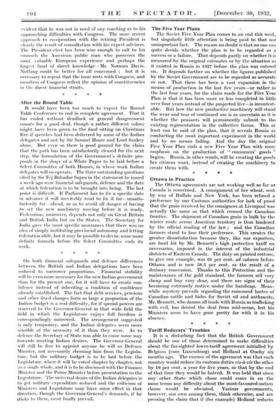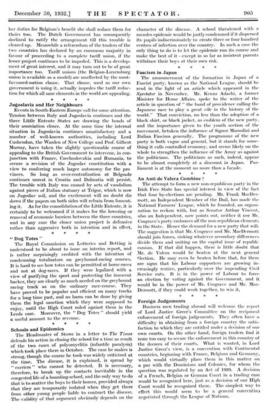Tariff Reducers' Troubles It is a disturbing fact that the
British Government should be one of those determined to make difficulties about the far-sighted lower-tariff agreement initialled by Belgium (cum Luxemburg) and Holland at Ouchy six months ago. The essence of the agreement was that each country would reduce its customs -duties vis-a-vis the other by 10 per cent. a year for five years, so that by: the end of that time they would• be halved. It was held that since any other State which chose could come < in on the same, terms any difficulty about the most-favoured-nation clause would be obviated. Various governments, however, our own among them, think otherwise, and are pressing the claim that if (for example.) Holland reduces her duties for Belgium's benefit she shall reduce them for theirs too.. The Dutch Government has consequently declined to ratify the arrangement till this trouble is cleared up. Meanwhile a referendum of the traders of the two countries has declared by an enormous majority in favour of -proceeding to a complete tariff union, if the lesser project continues to be impeded. This is a develop- -ment of great interest, and it may turn out to be of great importance too. Tariff unions (the Belgian-Luxemburg -union is available as a model) are unaffected by the most- favoured-nation clause. That clause, used as our own government is using it, actually impedes the tariff reduc- tion for which all sane elements in the world are appealing.
• * *































 Previous page
Previous page